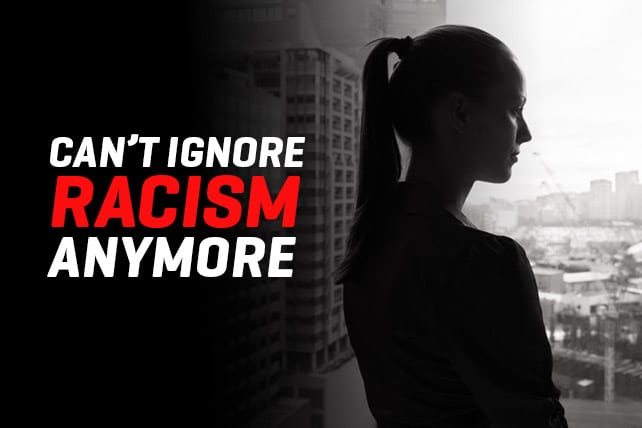Not long ago, I had a rude awakening about my own racial apathy. I thought racism had ended for the most part because of the Civil Rights Movement. I was sadly mistaken.
I grew up on military bases mostly overseas. If you’ve spent time in an environment like that, you understand it’s a little bit of an artificial setup. Everyone has the same access to education, healthcare, and is committed to a shared mission. Because of this, I grew up with the naive notion that racism was something that happened in America’s past—like before the Civil Rights Movement.
I had African American friends in school, played at their houses while their parents watched me and my sister, and had the hardest time understanding anyone with a southern accent. To me, this was America. Even if it wasn’t technically American soil.
My Naïve Bubble of Racial Apathy Was Burst
And then the second decade of the 21st century started to unfold. My elementary understanding of racial tensions in America began to shift with reports of unarmed black men being shot by police officers. At first they seemed like isolated incidents, but then the frequency became too much to ignore.
Sometime around the tumultuous 2016 election, I learned the statistic that America has the highest percentage of incarcerated people in the world. I also learned some upsetting stories of African Americans who had been unjustly tried and sentenced to prison—forever altering the course of their lives. And that stories like these happen more frequently in the African American community than they do in mine.
Fast forward to Saturday, August 12, 2017. I was at the gym, mindlessly watching the news when the reports of a white supremacist demonstration in Charlottesville, Virginia, came on. I thought, surely this is some small, remnant group that has been marooned somewhere in the Appalachian mountains, only now discovering modern America has grown up around them. Coming out of the woods, dazed and confused, this group must have been shocked to hear the Civil War is over and society has progressed. They don’t know racism no longer has a place here in America. (And yes, you have my permission to laugh at me now.)
But I quickly gathered this was not the case. According to some experts, the gathering was the largest group of white supremacists in one spot that our society has seen for a long time.
I watched in shock as the demonstration—which had turned violent at this point due to clashes with counter-demonstrators—not only continued all day, but had started the night before. The only encouraging thing I saw was the report of clergy marching through the streets in silent protest to the white supremacists.
Time to Wake Up from Racial Apathy
My roommate (the worship pastor at the church I attend) decided to hold a prayer vigil at our house that night. The handful of us who made it dropped our plans for the evening to gather together.
What unfolded put the final nail in the coffin of my under-informed understanding of race in America. As we each shared what our experience had been of hearing the news of the demonstration, it became clear: Most of us were shocked by the news, while only one of us was not.
Tracy is a chaplain at a hospital, a mother of six, and an African American. Very graciously, Tracy shared her story.
We were shocked to learn that Tracy had faced racism in our city. She and her family had moved to Colorado from North Carolina due to the racism her kids were facing in the south. Thinking Colorado would be a little better, they were disheartened when they woke up one day to graffiti on the back fence of their lawn brazenly featuring a racist comment.











